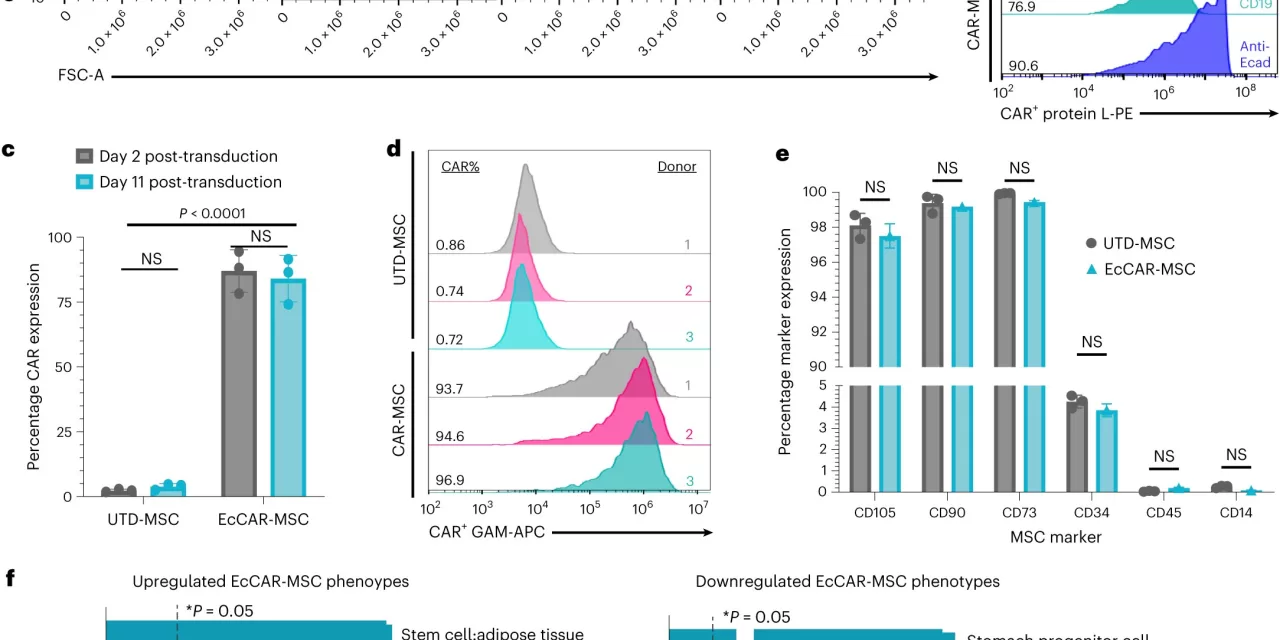Mayo Clinic researchers have made significant strides in the treatment of autoimmune diseases with the development of a novel immunotherapy strategy. Their groundbreaking approach, detailed in a preclinical study published in Nature Biomedical Engineering, holds promise for effectively addressing a spectrum of autoimmune conditions.
The new technique involves harnessing the power of chimeric antigen receptors (CAR) and mesenchymal stromal cells (MSC) to create engineered stem cells known as CAR-MSCs. This innovative approach, spearheaded by principal investigator and hematologist Dr. Saad Kenderian, presents a potential paradigm shift in autoimmune disease treatment.
“We’re excited about the potential of this pioneering approach to target inflammatory disease sites more precisely and improve outcomes for patients,” says Dr. Kenderian. “Our goal is to explore interventions that reduce the reliance on long-term medications for autoimmune diseases.”
At the core of this approach are mesenchymal stromal cells, versatile cells found in various tissues in the body, including bone marrow, fat tissue, and umbilical cord blood. Known for their ability to modulate the immune system, control inflammation, and promote immune tolerance, mesenchymal stromal cells serve as the foundation of the CAR-MSC therapy.
The CAR-MSCs are engineered with chimeric antigen receptors, molecular tools designed to recognize specific markers associated with autoimmune diseases. These receptors play a pivotal role in targeting diseased cells, anchoring to the target, and initiating signaling to activate an immune response.
While mesenchymal stromal cells have shown promise in autoimmune contexts, their efficacy has been limited when used in isolation. The integration of chimeric antigen receptors addresses this limitation by enhancing the cells’ ability to target specific markers and improve their therapeutic impact.
In preclinical studies, CAR-MSCs engineered to target proteins linked to graft-versus-host disease and inflammatory bowel diseases exhibited enhanced ability to home in on inflamed areas, control inflammation, and improve survival outcomes in mouse models. These promising results underscore the potential of CAR-MSC therapy to revolutionize autoimmune disease treatment.
Dr. Kenderian emphasizes that these findings lay the groundwork for future applications of this technology, with the potential to address a wide range of autoimmune diseases. This study represents a significant advancement in the field of immunotherapy and opens new avenues for the development of targeted treatments for autoimmune conditions.
The research conducted by Dr. Kenderian and his team builds upon previous studies on CAR-T therapy, demonstrating Mayo Clinic’s commitment to pioneering innovative treatments for complex medical conditions. Dr. Kenderian’s ongoing efforts to enhance the accessibility of CAR-T cell therapy further exemplify Mayo Clinic’s dedication to advancing patient care through cutting-edge research.
Journal Reference: Olivia Sirpilla et al, Mesenchymal stromal cells with chimaeric antigen receptors for enhanced immunosuppression, Nature Biomedical Engineering (2024). DOI: 10.1038/s41551-024-01195-6












